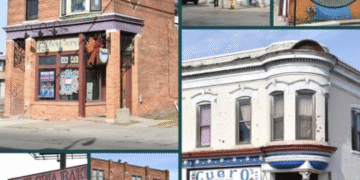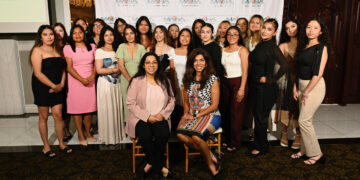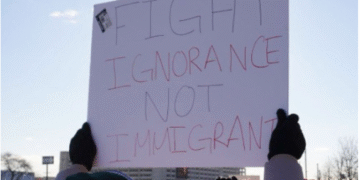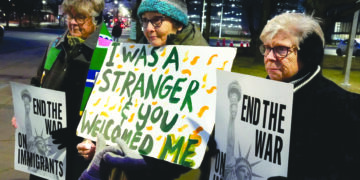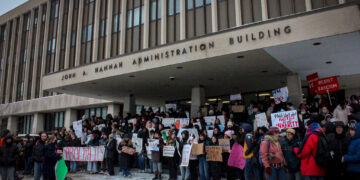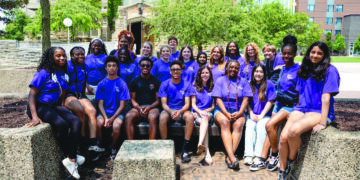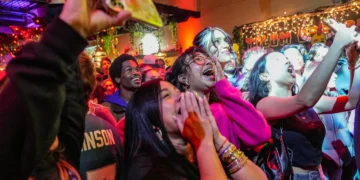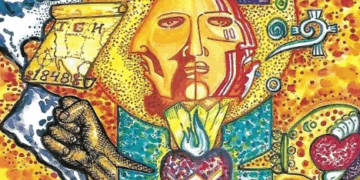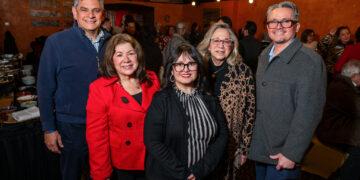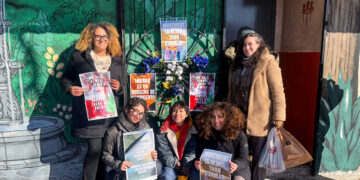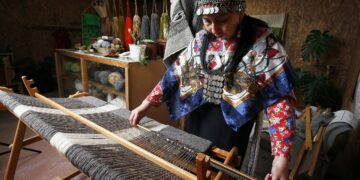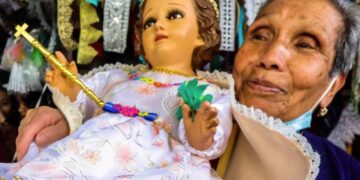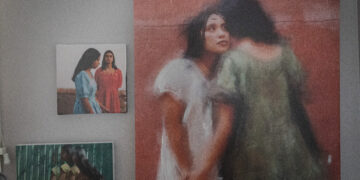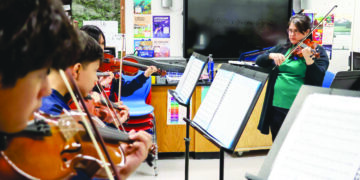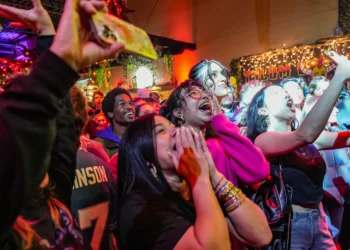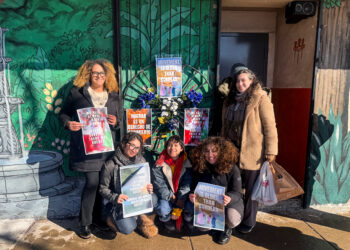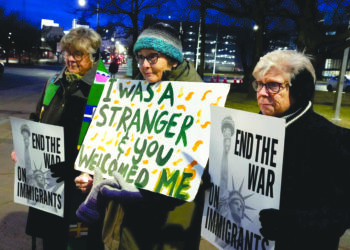From Brazil to South Africa, South Korea to Zimbabwe – the revolution is coming, and it is thrifty. Detroit will join dozens of cities across the globe to take part in Fashion Revolution Week – six days of sustainability workshops, panels, and seminars aimed at questioning the cycle of overproduction that exists in the fashion realm.
The week’s kick-off is a mixer at Playground Detroit Gallery at 2845 Gratiot Avenue near Detroit’s Eastern Market. Throughout the week there will be mending workshops, film screenings, an indie pop-up shop, clothes swaps, and more.
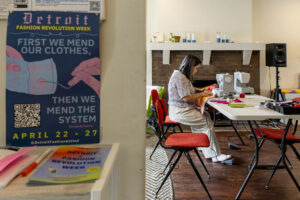
“Sustainable fashion doesn’t have to be expensive,” said Samantha Cerwin, who moved to Detroit from Mexico three years ago and now runs BeReworn, which helps people connect through sustainable fashion events. “From the cultural perspective, when we grow up, our mom will pass all our clothing to the next cousin… People don’t see that as part of the circular economy movement, but it is.”
Cerwin is one of four women – alongside Sarah Mark, Paulina Petkoski, and Nadia Boone – leading the Detroit chapter of Fashion Revolution Week. These women have different backgrounds in sustainability, but what they all agree on is that sustainability isn’t a luxury. It is a mindful act of resistance against a system that values money and the bottom line, over people and the planet.
Fashion Revolution Week emerged in 2014, a poignant commemoration of the first anniversary of the horrific Rana Plaza commercial building collapse in Bangladesh, a tragedy that claimed the lives of over 1,100 garment workers. The Rana Plaza collapse has since resulted in worker activism for safer conditions.
Born out of Oxford Street, London, the beginnings of the Fashion Revolution was a simple call to action: “that no one dies for fashion.” What started as a day of remembrance spread through Europe. By 2016, Fashion Revolution became a weeklong campaign.
Today, Fashion Revolution Week has chapters across Europe, Asia, Africa, and North America.
Nadia Boone, a Detroit native, joined the Detroit team after a brainstorming session. Her approach to fashion is laid back and encouraging.
“People living in low-income areas are already being sustainable without even realizing it,” Boone said. She is the creator of Biospoke, a clothing brand that specializes in natural and recycled materials.
In Detroit, about one in three residents live in poverty. Wearing second-hand clothing is less about trendiness and sustainability and more about the act of survival. But that could be why Detroit is the perfect place for Fashion Revolution Week.
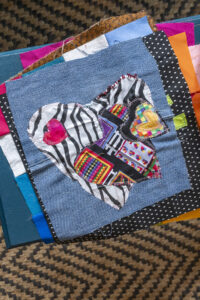
of the Commemorative Quilt Project, photographed at the Neighborhood Art School in Detroit, Michigan, on April 19, 2025. The project precedes Detroit Fashion Revolution Week and honors garment workers lost in the 2013 Rana Plaza disaster
This resourcefulness echoes the idea of the Chicano rasquachismo, which is rooted in the ingenuity of making do with what is at hand and making things last beyond their conventional use. Scarcity becomes a source for innovation. For example, reusing old t-shirts as rags. Instead of sustainability being a radical concept, rasquachismo reimagines the ideas of reuse and recycle as expressions of resilience and ingenuity.
Sarah Mark, textile artist and fashion educator, agrees that scarcity can be a harbinger of innovation. She hopes less production will mean a greater willingness to be innovative with the textiles that are already in circulation.
As Fashion Revolution Week unfolds in Detroit, it weaves the city into a global movement. The goal is active participation, not perfection.
“It’s this collective effort… like keep going,” said Cerwin.
To learn more about the Detroit Fashion Revolution Week and find details on specific events, you can visit www.bereworn.com/events/ or follow the Detroit Fashion United community on Instagram: @detroitfashionunited.
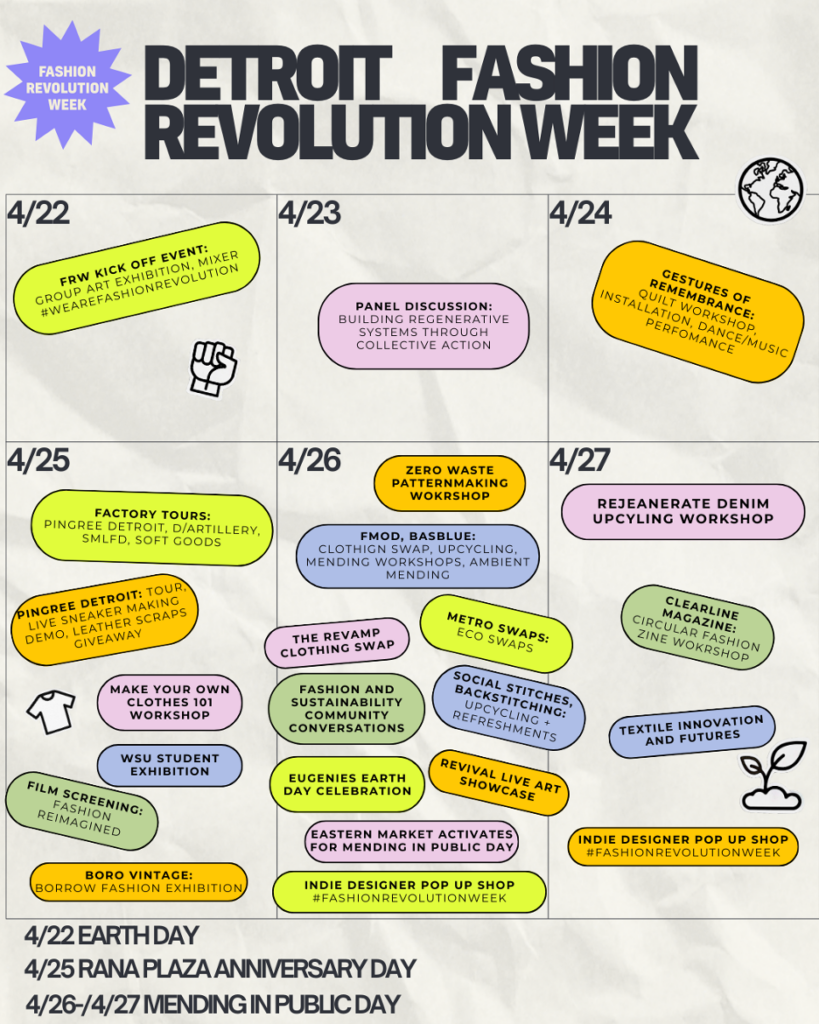
EL CENTRAL Hispanic News is partially funded by Press Forward, the national movement to strengthen communities by reinvigorating local news. Learn more at www.pressforward.news







